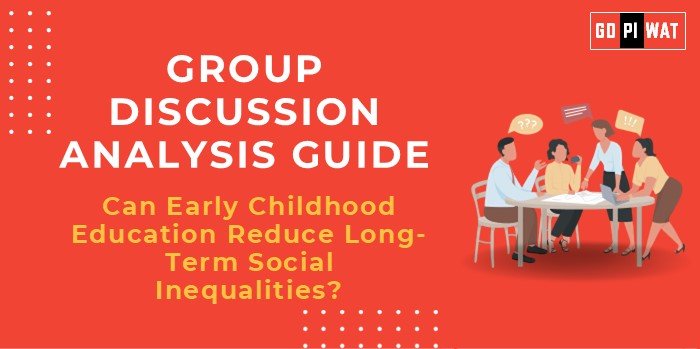📋 Can Early Childhood Education Reduce Long-Term Social Inequalities?
🌐 Introduction to the Topic
Education is one of the most powerful tools to address inequality. Early childhood education (ECE), focusing on children from birth to age eight, is recognized globally as a critical foundation for lifelong success and societal equity.
Early childhood education gained prominence after UNESCO’s declaration of the “Education for All” framework. Increasingly, policymakers emphasize its role in mitigating the adverse effects of socio-economic disparities.
📊 Quick Facts and Key Statistics
- 🌍 Global Reach: Over 50% of children in low-income countries lack access to early education, compared to just 4% in high-income countries (UNICEF, 2023).
- 📈 Return on Investment: Every $1 invested in quality ECE yields $6–$17 in societal benefits (Heckman Equation).
- 📚 Enrollment Disparities: In India, preschool enrollment is at 78% but shows significant urban-rural gaps (ASER, 2023).
- 🧠 Cognitive Impact: Quality ECE improves literacy rates by up to 30% in underprivileged communities (World Bank, 2023).
🏗️ Stakeholders and Their Roles
- 🏛️ Government Agencies: Provide funding, establish policies, and ensure quality standards for equitable ECE access.
- 🏫 Educational Institutions: Develop age-appropriate curricula and ensure skilled teacher training.
- 👨👩👧 Parents and Communities: Play a pivotal role in cultural and emotional development.
- 🌍 Non-Governmental Organizations: Address gaps in infrastructure and reach underserved regions.
- 📜 International Organizations: UNESCO and UNICEF provide frameworks and financial assistance to promote global ECE.
🏆 Achievements and Challenges
🎉 Achievements:
- 📜 UNESCO’s Global Initiatives: Programs like “Better Early Learning and Development at Scale” (BELDS) have impacted millions globally.
- 🇮🇳 India’s National Education Policy (NEP) 2020: Focuses on universal ECE by 2030.
- 🌍 Case Study – Finland: Universal access to ECE has resulted in one of the world’s lowest inequality rates.
⚠️ Challenges:
- 🏗️ Access Issues: Lack of infrastructure in rural and low-income areas.
- 📚 Quality Disparities: Shortage of trained teachers and high pupil-to-teacher ratios in many regions.
- 🚺 Gender Gaps: Girls often have lower access to ECE in patriarchal societies.
- 🌐 Global Comparisons: While Nordic countries achieve 98% ECE coverage, Sub-Saharan Africa struggles below 20%.
💡 Structured Arguments for Discussion
Supporting Stance: “Early childhood education is the cornerstone of social mobility, proven to reduce poverty cycles.”
Opposing Stance: “Without systemic changes, ECE alone cannot address entrenched socio-economic inequalities.”
Balanced Perspective: “ECE is vital but requires complementary reforms in healthcare, parental support, and social policies.”
🗣️ Effective Discussion Approaches
Opening Approaches:
- 📊 Data-Driven: “Every $1 invested in ECE saves up to $17 in later social costs.”
- 📖 Case Study Highlight: “In Finland, universal ECE significantly closed learning gaps across socio-economic classes.”
Counter-Argument Handling:
- ✔️ Acknowledge structural barriers and emphasize multi-faceted solutions, such as partnerships between governments and NGOs.
⚙️ Strategic Analysis of Strengths and Weaknesses
- ✅ Strengths: Builds cognitive skills, fosters equity, and improves future employability.
- ❌ Weaknesses: High initial costs, disparity in access, and lack of parental awareness.
- 📈 Opportunities: Leveraging technology and public-private partnerships.
- ⚠️ Threats: Budget constraints, political instability, and societal resistance.
🎓 Connecting with B-School Applications
Real-World Applications:
Explore ECE’s impact on business ethics, CSR initiatives, and public policy frameworks.
Sample Interview Questions:
- 💬 “How can ECE align with corporate CSR goals?”
- 📈 “Evaluate the long-term ROI of ECE investments.”
Insights for Students:
- 📘 Consider internships in NGOs or projects studying education policy.


